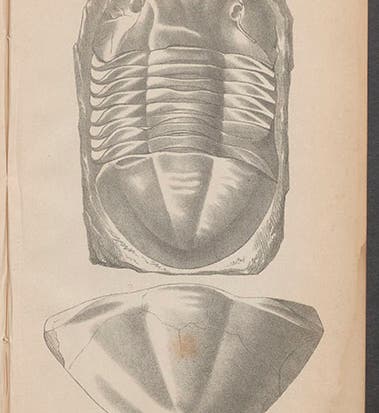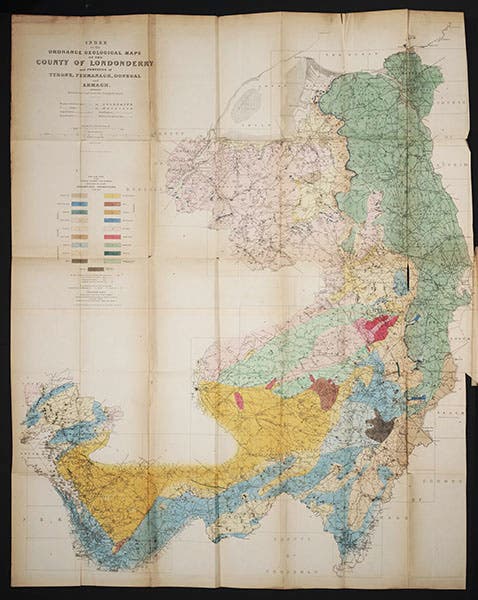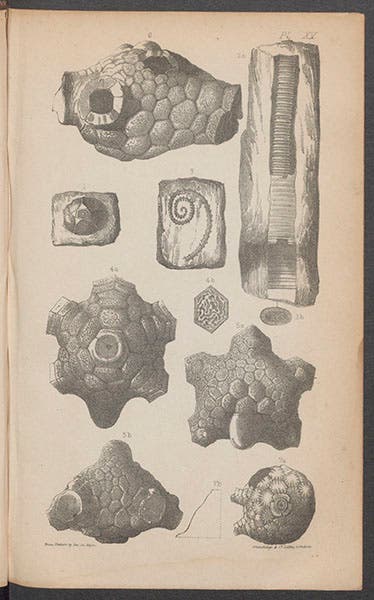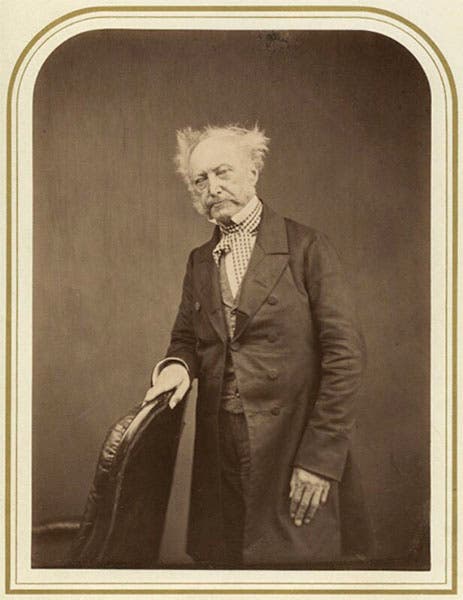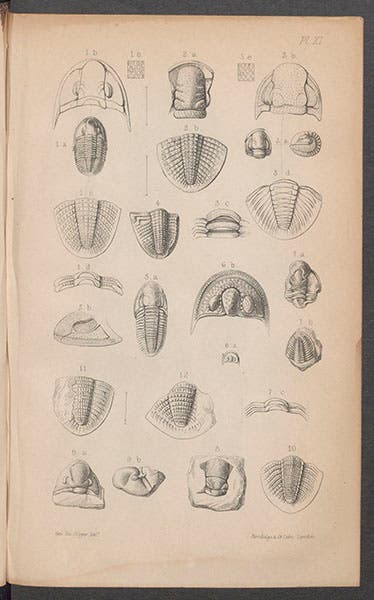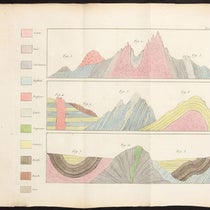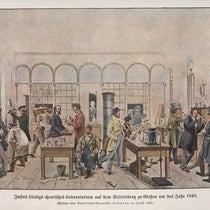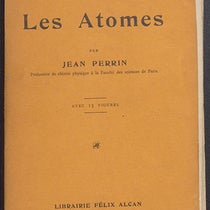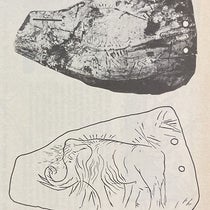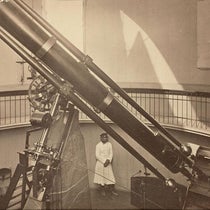Scientist of the Day - Joseph Portlock
Joseph Ellison Portlock, geologist and British army officer, was born September 30, 1794. He was the only son of Nathaniel Portlock, a captain in the British Royal Navy who sailed with Captain Cook's third voyage. The younger Portlock was educated at the Royal Military Academy, but rather than following in his father's footsteps as a naval officer, he joined the Royal Engineers in Canada in 1813. He spent the next several years serving in the War of 1812 and on field expeditions exploring for Britain.
In 1824, Portlock was summoned back home and selected by Colonel Thomas Frederick Colby to oversee the topographical mapping of Ireland for the Ordnance Survey. He spent many years in the field doing trigonometrical survey work in all seasons and terrains. Conditions were so hostile at some points that two men were left dead. His men found him skillful, robust, and hardworking, if somewhat unapproachable.
By 1830, the Survey's geological investigation of County Londonderry was underway. Portlock received permission to publish a (presumably nearly finished) volume on the geology of the county in 1840. To Col. Colby's annoyance, Portlock's geological method included a great deal of paleontology, which Colby saw as an impractical preoccupation. Even more frustratingly, Portlock didn't finish the book until 1843, long after he was expected to do so. Exasperated by his several missed deadlines, Portlock's superiors removed him from the Ordnance survey and reassigned him to the Greek island of Corfu.
Portlock's masterwork is called Report on the Geology of the County of Londonderry, and of Parts of Tyrone and Fermanagh. It is a substantial tome with a number of beautiful plates of invertebrate fossils, as well as an impressive folding map of Londonderry (second image). The book sold miserably in its first year, but it was well regarded, by geologists at least. Roderick Murchison, the celebrated father of the Silurian system, described Portlock's book as "a perfect model for fidelity of observation and minute attention to phenomena."
A man of many talents, Major General Portlock enthusiastically pursued his interests after his labor-intensive report was published. He wrote a memoir on the life of his former superior, Colonel Colby. He authored articles for the 8th edition of the Encyclopaedia Britannica. Members of the Geological Society of London elected him as chair for 1857/58 – and this is just the most notable of his numerous memberships. Around this time, he sat for a portrait with London photographers Maull & Polyblank, in which he is every bit the distinguished gentleman, yet conspicuously rugged. It is now in the National Portrait Gallery in London (fourth image).
One of Portlock's lasting legacies was his classification of lower Carboniferous trilobites. In interpreting the dozens of species he uncovered during the Geological Survey, Portlock reassigned several of them to two new genera of trilobites: Phillipsia and Griffithides (fifth image). Portlock named his new genera in honor of John Phillips, a highly respected fossil expert, and Richard Griffith, an accomplished surveyor. The new names inspired a delightful cartoon by one of Portlock's men, who depicted Phillips and Griffith locked in combat, adorned in trilobite armor (sixth image). The sketch may have been an interpretation of a disagreement over Griffith's description of some unfossiliferous Irish bedrock as Silurian in age. Phillipsia and Griffithides formed a foundation for trilobite taxonomy upon which future scientists could build, and traces of them can still be seen in the scientific literature today.
Emma Priesendorf, graduate student, Department of History, University of Missouri-Kansas City. Comments or corrections are welcome; please direct to emma.priesendorf@mail.umkc.edu.

